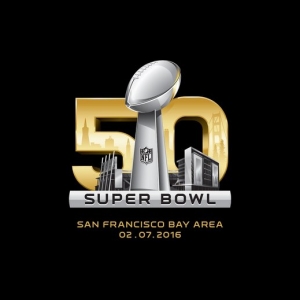Super Bowl Betting Pools Make Game Entertaining For Casual Fans
by Trevor Whenham
![]()

There are certain things that are required for watching and enjoying the Super Bowl. Among them: lots of people to watch with and hopefully mock when your insights prove superior to theirs, lots and lots of beer, snacks so good and so bad for you that you can feel your life getting shorter with every bite, a good TV (the more the merrier), and gambling - lots of gambling. You see, at the heart of it the Super Bowl is an endurance test - it's painfully long, and it's often not the most exciting game in the world.
The only way to make it really work as a memorable afternoon is to have all of the above things in excess. Most of it isn't too hard to figure out and has nothing to do with what we do here, so you are on your own. What we can help you out with, though, is the gambling.
There are a few different kinds of gambling that you pretty much have to do on the Super Bowl regardless of whether they offer any real value or not - ad they almost certainly won't. First, you have to check the Super Bowl odds, pick a side and put some money down. You can't have any bragging rights at all if you didn't make a bet to back your opinion. Next, you need to bet a few props - and the crazier the better. You get extra points here if the props you bet on involve absolutely no skill whatsoever - like betting on the coin toss, or how long the national anthem will be. Finally, you need to have a way to gamble with all of the people you are watching the game with. Because most of those people likely won't know much about football - and it goes without saying that none will know as much as you - you need to find a way to gamble which gives people a good chance of winning regardless of their knowledge, and one that isn't particularly expensive. The best way to do that is a Super Bowl square pool.
This isn't a difficult concept. You start by drawing a 10 x 10 grid on a piece of paper - in other words, a square that is split into 100 smaller squares. Next, you determine a price for each square based on the number of people that are going to be at your Super Bowl party and how cheap your friends are. You could charge people 25 cents a square if they are really cheap. A dollar per square is pretty standard, though, an you could go as high as you want. Each time a person buys a Super Bowl square they get to write their name on it, and you keep selling squares until they are all gone or until the game is about to start.
Now you have to figure out what the squares mean. First, by flipping a coin you can determine which team is represented by the left side of the large square, and which team is represented by the top side. Next, you need to draw numbers from a hat to randomly draw a number from 0-9 for each row for the team on the left side of the square, and then you need to do it all over again to assign a number for each column for the team on the top. Once you have that done you are all set.
Now the fun begins. The digits you have drawn represent the last digit of the score of each team at different points of the game - usually the end of each quarter and the final score. For example, if the the score is 24-17 for the Saints at halftime then the winner would be the person who has the square Which is the intersection of New Orleans 4 and Indianapolis 7. You can split the total prize pool up how ever you want, but typically people will do something like 20 percent for the winner of each of the first three quarters, and 40 percent for the final score winner. If you make your square on a big piece of paper so that people can see it throughout the game then it can increase the trash talk and the suspense ans people see their dreams realized or crushed.
Some people will tell you that you can fill in the number on both sides of the big square before you sell the small squares. You theoretically can, but there is a big problem with this - people with a bit of knowledge have an advantage. Anyone who does any sports betting, or anyone with half a brain, is going to know that some numbers are more likely than others. Seven and three are more likely to be the last digits of the first quarter than eight, for example. Setting it up so that more experienced bettors will have an edge entirely defeats the purpose of this kind of gambling - it's all about random, dumb luck.
